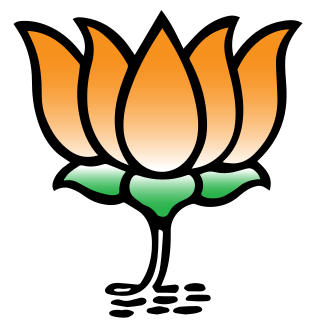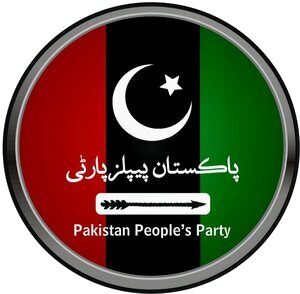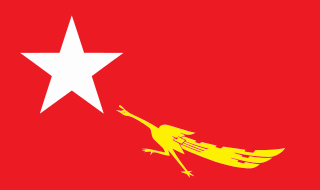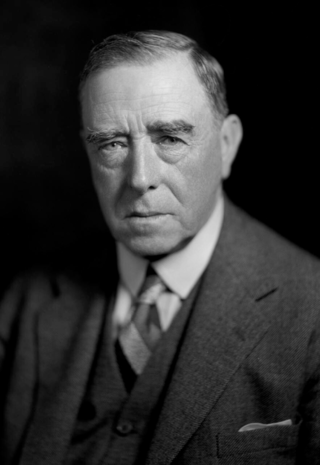
The Country Liberal Party of the Northern Territory (CLP), commonly known as the Country Liberals, is a centre-right and conservative political party in Australia's Northern Territory. In territory politics, it operates in a two-party system with the Australian Labor Party (ALP). It also contests federal elections as an affiliate of the Liberal Party of Australia and National Party of Australia, the two partners in the federal coalition.

Euroscepticism, also spelled as Euroskepticism or EU-scepticism, is a political position involving criticism of the European Union (EU) and European integration. It ranges from those who oppose some EU institutions and policies and seek reform, to those who oppose EU membership and see the EU as unreformable. The opposite of Euroscepticism is known as pro-Europeanism.

The Liberal Party of Australia is a centre-right political party in Australia. It is one of the two major parties in Australian politics, the other being the Australian Labor Party. The Liberal Party was founded in 1944 as the successor to the United Australia Party. Historically the most successful political party in Australia’s history, the Liberal Party is now in opposition at a federal level, although it presently holds government in the Northern Territory, Queensland and Tasmania at a sub-national level.

A political party is an organization that coordinates candidates to compete in a particular country's elections. It is common for the members of a party to hold similar ideas about politics, and parties may promote specific ideological or policy goals.
A one-party state, single-party state, one-party system or single-party system is a governance structure in which only a single political party controls the ruling system. In a one-party state, all opposition parties are either outlawed or enjoy limited and controlled participation in elections. The term "de facto one-party state" is sometimes used to describe a dominant-party system that, unlike a one-party state, allows multiparty elections, but the existing practices or balance of political power effectively prevent the opposition from winning power.

The Bharatiya Janata Party is a political party in India and one of the two major Indian political parties alongside the Indian National Congress. BJP was born out from Syama Prasad Mukherjee's Bharatiya Jana Sangh. Since 2014, it has been the ruling political party in India under the incumbent Prime Minister Narendra Modi. The BJP is aligned with right-wing politics and has close ideological and organisational links to the Rashtriya Swayamsevak Sangh (RSS), a far-right paramilitary organisation. Its policies adhere to Hindutva, a Hindu nationalist ideology. As of January 2024, it is the country's biggest political party in terms of representation in the Parliament of India as well as state legislatures.

Primary elections or primaries are elections held to determine which candidates will run in an upcoming general election. In a partisan primary, a political party selects a candidate. Depending on the state and/or party, there may be an "open primary", in which all voters are eligible to participate, or a "closed primary", in which only members of a political party can vote. Less common are nonpartisan primaries in which all candidates run regardless of party.

The All-Russian Political Party United Russia is the ruling political party of Russia. As the largest party in the Russian Federation, it holds 325 of the 450 seats in the State Duma as of 2022, having constituted the majority in the chamber since 2007.

The Pakistan People's Party is a centre-left political party in Pakistan, currently being the largest in the Senate and second-largest party in the National Assembly. The party was founded in 1967 in Lahore, when a number of prominent left-wing politicians in the country joined hands against the rule of Ayub Khan, under the leadership of Zulfikar Ali Bhutto. It is affiliated with the Socialist International. The PPP's platform was formerly socialist, and its stated priorities continue to include transforming Pakistan into a social-democratic state, promoting egalitarian values, establishing social justice, and maintaining a strong military. It, alongside the Pakistan Muslim League-Nawaz and the Pakistan Tehreek-e-Insaf, is one of the three largest political parties of Pakistan.

The Pakistan Muslim League (N) abbreviated as PML (N), (Urdu: پاکستان مسلم لیگ (ن)) is a centre-right, conservative political party in Pakistan. It is currently the third-largest party in the Senate and the largest in the National Assembly. The party was founded in 1993, when a number of prominent conservative politicians in the country joined hands after the dissolution of Islamic Democratic Alliance, under the leadership of former Prime Minister Nawaz Sharif. The party's platform is generally conservative, which involves supporting free markets, deregulation, lower taxes and private ownership. Although the party historically supported social conservatism, in recent years, the party's political ideology and platform has become more liberal on social and cultural issues; however, members have been accused of using Islamist populist rhetoric. Alongside the Pakistan Tehreek-e-Insaf (PTI) and Pakistan People's Party (PPP), it is one of the three major political parties of the country.

The National League for Democracy is a deregistered liberal democratic political party in Myanmar. It became the country's ruling party after a landslide victory in the 2015 general election but was overthrown in a coup d'état in February 2021 following another landslide election victory in 2020.

Open list describes any variant of party-list proportional representation where voters have at least some influence on the order in which a party's candidates are elected. This is as opposed to closed list, in which party lists are in a predetermined, fixed order by the time of the election and gives the general voter no influence at all on the position of the candidates placed on the party list.

Elections to the European Parliament take place every five years by universal adult suffrage; with more than 400 million people eligible to vote, they are the second largest democratic elections in the world after India's.

The Liberal–National Coalition, commonly known simply as the Coalition or the LNP, is an alliance of centre-right to right-wing political parties that forms one of the two major groupings in Australian federal politics. The two partners in the Coalition are the Liberal Party of Australia and the National Party of Australia. Its main opponent is the Australian Labor Party (ALP); the two forces are often regarded as operating in a two-party system. The Coalition was last in government from 2013 to 2022. The group is led by Peter Dutton, who succeeded Scott Morrison after the 2022 federal election.

Starting with the 2000 United States presidential election, the terms "red state" and "blue state" have referred to US states whose voters vote predominantly for one party—the Republican Party in red states and the Democratic Party in blue states—in presidential and other statewide elections. By contrast, states where the vote fluctuates between the Democratic and Republican candidates are known as "swing states" or "purple states". Examining patterns within states reveals that the reversal of the two parties' geographic bases has happened at the state level, but it is more complicated locally, with urban-rural divides associated with many of the largest changes.

Parliamentary elections were held in Syria on 7 May 2012 to elect the members of the Syrian People's Council. The elections followed the approval of a new constitution in a referendum on 26 February 2012.

The 2012 United States House of Representatives election in Wyoming was held on Tuesday, November 6, 2012, and re-elected Cynthia Lummis as the U.S. representative from the state's at-large congressional district. The election coincided with the elections of other federal and state offices, including a quadrennial presidential election and an election to the U.S. Senate. A primary election was held on August 21, 2012.

The 1935 Victorian state election was held in the Australian state of Victoria on Saturday 2 March 1935 to elect 53 of the 65 members of the state's Legislative Assembly. 12 seats were uncontested.

The Victorian Liberal Party, officially known as the Liberal Party of Australia (Victorian Division) and branded as Liberal Victoria, is the state division of the Liberal Party of Australia in Victoria. It was formed in 1949 as the Liberal and Country Party (LCP) and simplified its name to the Liberal Party in 1965. The party sits on the centre-right to right-wing of the Australian political spectrum, and is currently led by Brad Battin.















